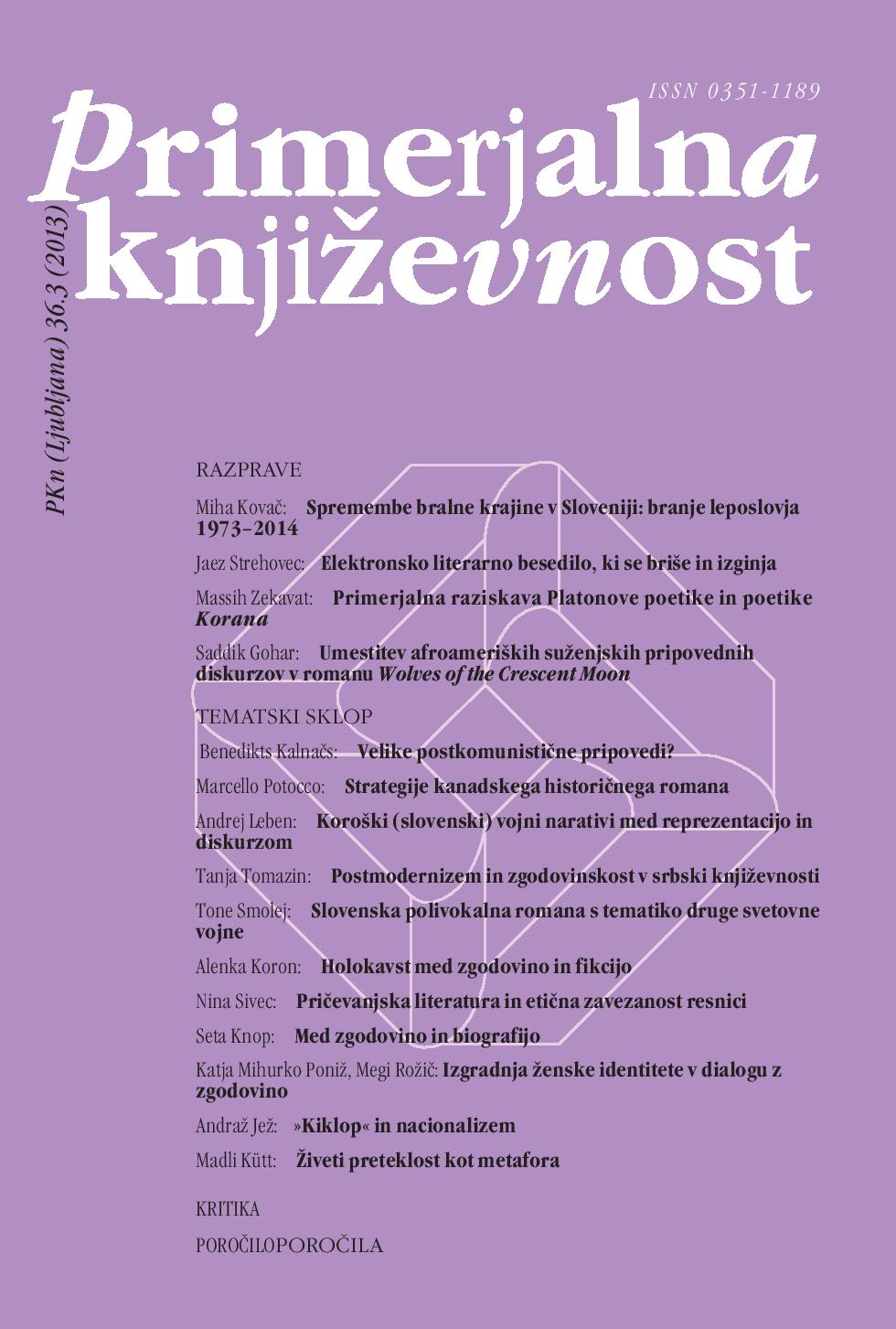Positioning African American Slave Narrative Discourses in Wolves of the Crescent Moon
Keywords:
Arabic literature, African-American literature, tribal culture, slavery, slave narratives, Saudi Arabia, Al-Mohaimeed, YousefAbstract
This paper examines Wolves of the Crescent Moon in order to centralize the subaltern voice of the slave narrator and illuminate the intersection between slavery and freedom underpinning the text narrative. The paper also explores the author’s attempt to reconstruct thematic and aesthetic motifs latent in African-American slave narratives in order to engage Arabic-Islamic slavery unknown in modern western canons.References
Alexander, J. “Islam, Archaeology and Slavery in Africa.” World Archaeology 33.1 (2001): 44–60.
Al-Muhaimeed, Yousef. Wolves of the Crescent Moon. Trans. Anthony Calderbank. Cairo: American University in Cairo Press, 2007.
Austin, Allan D. African Muslims in Antebellum America: A Source Book. New York: Garland Publishing, Inc., 1984.
Bhaba, Homi K. The Location of Culture. New York: Routledge, 1994.
Carby, Hazel V. “Ideologies of Black Folk: The Historical Novel of Slavery.” Slavery and the Literary Imagination. Eds. Deborah E. McDowell and Arnold Rampersad. Baltimore: Johns Hopkins University Press, 1989. 125–143.
Davis, Charles T. and Gates, Henry Louis Jr. Eds. The Slave’s Narrative. New York: Oxford University Press, 1985.
Fitzhugh, George. “Cannibals All! Or, Slaves Without Masters.” Ante Bellum. Writings of George Fitzhugh and Hinton Rowan Helper on Slavery. Ed. Harvey Wish. New York: Capricorn Books, 1960. 97–156.
Foucault, Michael. Madness and Civilization. New York: Vintage, 1965.
Levecq, Christine. “Texts and Contexts: The Historical Novel About Slavery”. Contemporary Literature 42.4 (2001): 160–165.
Lewis Bernard. Race and Slavery in the Middle East: An Historical Enquiry. New York: Oxford University Press, 1990.
Little, Jonathan.”Charles Johnson’s Revolutionary Oxherding Tale.” Studies in American Fiction 19 (1991): 141–151.
Loggins, Vernon. The Negro Author: His Development in America. New York: Kennikat, 1931.
McDowell, Deborah E. “Witnessing Slavery After Freedom – Dessa Rose.” Slavery and the Literary Imagination. Eds. Deborah E. McDowell and Arnold Rampersad. Baltimore: Johns Hopkins University Press, 1989. 144–163.
Miers, Suzanne and Roberts, Richard. “The End of Slavery in Africa.” The End of Slavery in Africa. Eds. Suzanne Miers and Richard Roberts. Madison: University of Wisconsin Press, 1988. 3–70.
O’Fahey, R.S. “Slavery and the Slave Trade in Darfur.” Journal of African History 14 (1973): 40–75.
Olney, James. “I Was Born: Slave Narratives, Their Status as Autobiography and as Literature.” Callaloo 20 (1984): 46–73.
Osman Ghada and Camille F. Forbes. “Persisting the West in the Arabic Language: The Slave Narrative of Omar ibn Said.” Journal of Islamic Studies 15.3 (2004): 331–343.
Rampersad, Arnold. “Slavery and the Literary Imagination: Du Bois’s Souls of Black Folk.” Slavery and the Literary Imagination. Eds. Deborah E. McDowell and Arnold Rampersad. Baltimore: Johns Hopkins University Press, 1989. 104–124.
Ricoeur Paul. “Memory and Forgetting.” Questioning Ethics: Contemporary Debates in Philosophy. Eds. Richard Kearney and Mark Dooley. London: Routledge, 1999. 1–11.
Stepto, Robert B. From Behind the Veil: A Study of Afro-American Narrative. Urbana: University of Illinois Press, 1979.
Thiong’o wa Ngugi. Moving the Centre: The Struggle for Cultural Freedom. London: James Currey, 1993.


